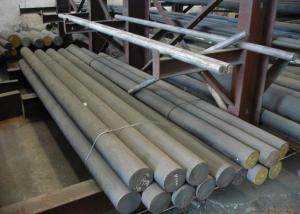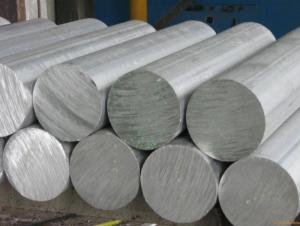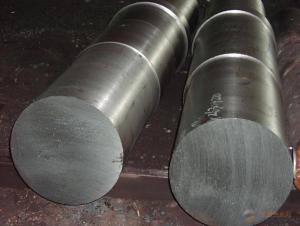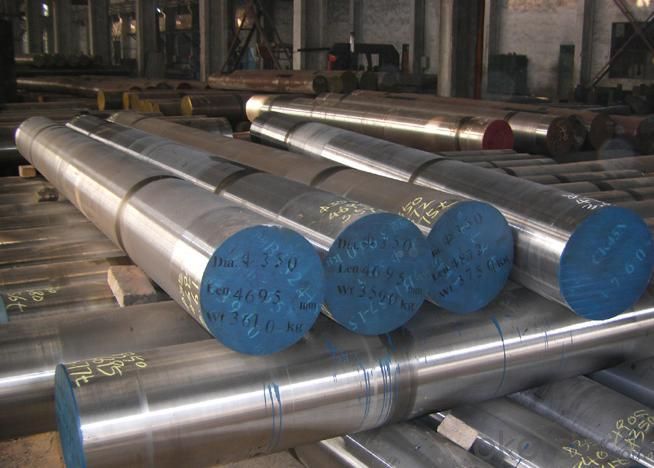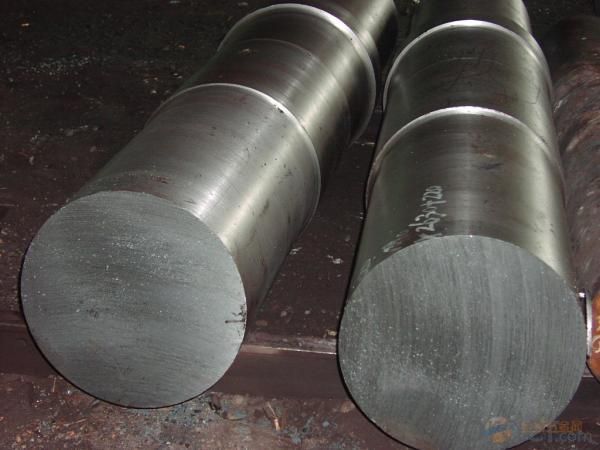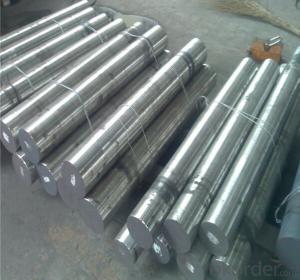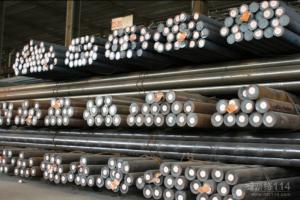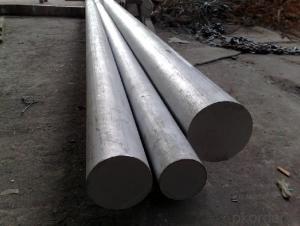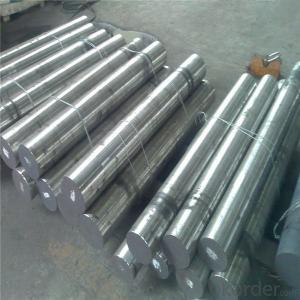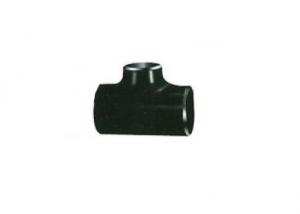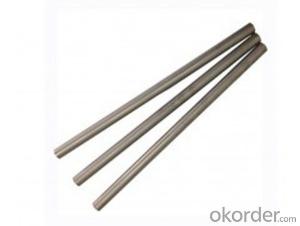Alloy Steel of Bearing
- Loading Port:
- Guangzhou
- Payment Terms:
- TT or LC
- Min Order Qty:
- 25MT m.t.
- Supply Capability:
- 600000 Tons/Year m.t./month
OKorder Service Pledge
OKorder Financial Service
You Might Also Like
Specifications of Alloy Steel For Bearing
1. Grade: AISI 52100, ASTM E52100, DIN 1.3505,JIS SUJ2, GCr15
|
100Cr6 |
52100 |
SUJ2 |
GCr15 |
|
100CrMo7 |
100CrMo7 |
SUJ5 |
GCr18Mo |
|
20CrMo4 |
4118H |
SCM418 |
G20CrMo |
|
20NICrMo2 |
8520H |
SNCM220 |
G20CrNiMo |
|
- |
- |
440C |
9Cr18 |
|
X108CrMo17 |
S44004 |
440C |
9Cr18Mo |
2. Specification: Diameter: 5.5~350mm Length: 2000-6000mm or as required
3. Steel Grade: Bearing Steel
4. Certification: ISO9001-2000; CE, UL
5. Inspection: 100% Ultrasonic according to the test standards: SEP1921-84, GR.3 CLASS C/C
6. Packing situation: standard seaworthy packing or as customer required
7. Heat treatment:
Soft annealing: heat to 680-720°C, cool slowly.
Hardness after annealing: Max. 241 HB
Hardening: 820 - 850 °C
Normalizing temperature: 840-880°C
Tempering: 540-680°
Usage and Applications of Alloy Steel For Bearing
Alloy steel is used in making all kinds of bearing ring and rolling elements, like combustion engine, machine tool, and bearings for melting machine; also used for making tools and measuring tools.
Bearing steels are used for ball and roller bearing applications and are comprised of low carbon steels and high carbon through harden able steel.
Alloy Steel can be used in machine parts and engineering components.
Applications range: Chemical fertilizer pipe, building, machinery, textile industry, etc
Packaging & Delivery of Alloy Steel For Bearing
Packaging Detail: Standard seaworthy packing or as customer required; Packed in bundles with standard export sea-worthy package or as customer require
Delivery Detail: 45 days after order confirmed
Delivery condition: Black, peeled, machined
Trade terms: FOB, CFR, CIF
MOQ: 25 tons or at customer's demands
Production Flow of Alloy Steel For Bearing
Process: EAF+LF+VD+ Hot Rolled(Forged)+ Heat Treatment (Annealed, A Normalized, Q+T)
The processing is hot rolled (strictly control sulphur, phosphorus and non-metallic inclusions content and distribution).
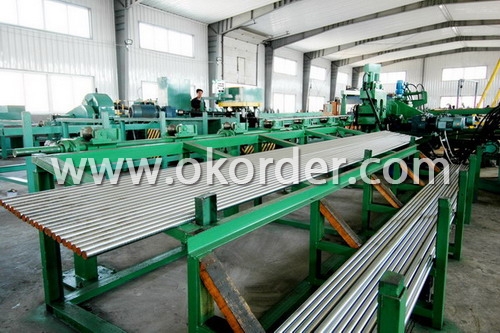
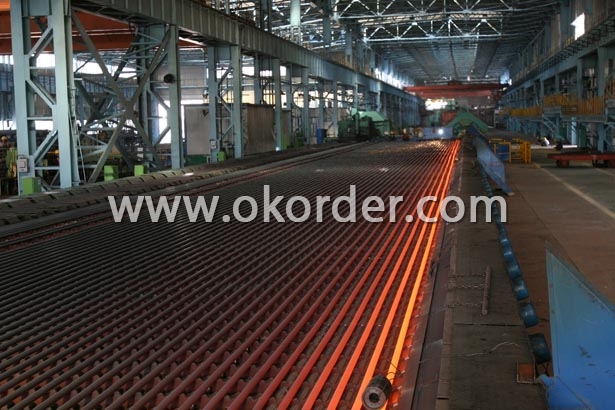
Product Advantages of Alloy Steel For Bearing
1. Good comprehensive properties
2. Good performance in cutting and processing after spheroids annealing
3. High hardness and homogenization after quenching and tempering
4. High abrasive resistance and fatigue resistance
5. Large amount of metal elements
6. High abrasion resistant SAE 52100 bearing steel
7. Steel GCr15 is the most widely used bearing steel
Quality Assurance of Alloy Steel for Bearing
We are the ISO 9001:2000 authentication enterprises and we can provide the enterprise's quality written guarantee for all the exported products.
Certificate of quality is issued in English, in addition the normal terms, production process, the mechanical property (yield strength, tensile strength, elongation and hardness. forged ratio, UT test result, Grain size, heat treatment methods and the sample of is shown on the certificate of quality.
- Q: What are the properties of high-strength stainless steel?
- High-strength stainless steel possesses excellent corrosion resistance, high tensile strength, and durability. It is resistant to high temperatures, making it suitable for use in extreme environments. Additionally, it offers good formability and weldability, allowing for various fabrication processes.
- Q: How does stainless steel contribute to the automotive industry?
- Stainless steel contributes to the automotive industry by providing superior strength, durability, and corrosion resistance. It is commonly used in the manufacturing of exhaust systems, body panels, and structural components, increasing the lifespan and safety of vehicles. Its high heat resistance also makes it ideal for engine parts, resulting in improved performance and efficiency.
- Q: How does special steel contribute to improving product reliability?
- Special steel contributes to improving product reliability in several ways. Firstly, special steel is known for its exceptional strength and durability, which enhances the overall performance and lifespan of various products. It can withstand heavy loads, resist wear and tear, and maintain its structural integrity even under extreme conditions. Secondly, special steels often possess excellent corrosion resistance properties, preventing rust and deterioration over time. This is particularly crucial for products exposed to moisture or harsh environments. Additionally, special steel allows for precise manufacturing and provides consistent material properties, ensuring the quality and reliability of the final product. By utilizing special steel, manufacturers can enhance the reliability of their products, offering customers a longer lifespan, reduced maintenance requirements, and increased safety and performance.
- Q: What are the different methods of testing the quality of special steel?
- To assess the quality of special steel, a range of testing methods are employed. These methods serve to verify that the steel meets the necessary standards and is suitable for its intended applications. One such method is chemical analysis, which involves scrutinizing the steel's composition to ensure it adheres to the required chemical specifications. This analysis helps determine the presence and quantity of crucial elements like carbon, manganese, chromium, nickel, and others, which play a significant role in achieving specific mechanical properties. Another testing approach is mechanical testing, which aims to evaluate the steel's strength, hardness, ductility, and other mechanical properties. Common tests include tensile testing, which measures the steel's ability to withstand tension, and hardness testing, which gauges its resistance to indentation or scratching. Non-destructive testing (NDT) methods are also utilized to assess steel quality without causing any damage. Techniques such as ultrasonic testing, magnetic particle testing, and liquid penetrant testing are employed to identify surface and internal defects, cracks, or discontinuities that could compromise the steel's integrity. Microscopic examination is employed to study the microstructure of special steel, allowing for the evaluation of grain size, inclusions, and other structural features. This analysis provides insights into the steel's properties and potential defects. Corrosion testing is carried out to ensure that special steel can withstand corrosive environments. Various tests, such as salt spray testing, electrochemical methods, and exposure to corrosive substances, are performed to assess the steel's resistance to corrosion and suitability for specific applications. To evaluate the steel's toughness and resistance to sudden loading, impact testing is conducted. This involves subjecting the steel to high-energy impacts to determine if it can withstand sudden shocks without fracturing. Heat treatment analysis is also essential for special steel, as it often undergoes heat treatment processes to enhance its properties. This analysis involves examining the microstructure and hardness of the steel after treatment to ensure it has achieved the desired properties. In conclusion, the combination of these testing methods guarantees that special steel meets the necessary quality standards, making it suitable for various applications in construction, automotive, aerospace, and industrial equipment.
- Q: What are the different corrosion testing methods used for special steel?
- To assess and evaluate the resistance of special steel against corrosion, various testing methods are utilized. These include: 1. Salt Spray Testing: This method involves subjecting the special steel to a controlled mist of saltwater. The steel specimen is placed in a chamber where it is exposed to the mist for a specific duration. The resulting corrosion is visually evaluated and compared to established criteria. 2. Electrochemical Testing: To study the corrosion behavior of special steel, electrochemical techniques like potentiodynamic polarization and electrochemical impedance spectroscopy (EIS) are commonly employed. These methods measure the steel's current and potential responses in different corrosive solutions, providing information on corrosion rate and other electrochemical parameters. 3. Immersion Testing: In this method, the special steel is immersed in a specific corrosive solution for a predetermined period. The solution can be acidic, alkaline, or even simulated seawater, depending on the intended application. The corrosion-induced weight loss or surface damage is then measured and compared to assess the steel's corrosion resistance. 4. Crevice Corrosion Testing: This technique focuses on evaluating the susceptibility of special steel to crevice corrosion, which occurs in confined spaces or gaps. By creating a crevice between the steel specimen and another material and introducing a corrosive solution, the severity of crevice corrosion can be assessed. This can be done by measuring the depth of attack or using electrochemical methods. 5. Intergranular Corrosion Testing: Special steel is sometimes prone to intergranular corrosion, which occurs along the grain boundaries. Tests like the Strauss test or the Huey test are conducted to determine the steel's susceptibility to this form of corrosion. These tests involve immersing the steel in a corrosive solution at elevated temperatures and assessing the extent of intergranular attack. 6. Accelerated Testing: Accelerated corrosion testing methods aim to simulate the long-term effects of corrosion within a shorter time frame. Techniques like cyclic corrosion testing, which involve alternating exposure to different corrosive environments, can provide valuable insights into the steel's performance under realistic conditions in a shorter period. It should be noted that the selection of the corrosion testing method depends on the specific requirements, intended application, and environmental factors to which the special steel will be exposed.
- Q: How does special steel contribute to the construction of infrastructure projects?
- Special steel plays a crucial role in the construction of infrastructure projects by providing enhanced strength, durability, and resistance to corrosion. It is commonly used in critical structural components such as beams, columns, and reinforcement bars, ensuring the stability and longevity of buildings, bridges, and other infrastructure. Additionally, special steel alloys offer flexibility in design, making it possible to create structures that are lighter and more cost-effective without compromising safety or structural integrity.
- Q: What are the different surface treatments for special steel?
- There are several different surface treatments available for special steel, including galvanization, electroplating, powder coating, and nitriding. These treatments provide various benefits such as corrosion resistance, improved appearance, increased hardness, and enhanced durability, depending on the specific needs and requirements of the steel application.
- Q: What are the main applications of special steel in the oil and gas equipment?
- Special steel is widely used in the oil and gas equipment industry due to its exceptional properties such as high strength, corrosion resistance, and heat resistance. Some of the main applications of special steel in this industry include manufacturing of drilling equipment, pipelines, valves, fittings, and other critical components. Special steel ensures the durability and reliability of these equipment in harsh environments, such as offshore drilling, where they are subjected to extreme temperatures, high pressures, and corrosive substances.
- Q: How does special steel perform in high-temperature oxidation with sulfur-containing atmospheres?
- Special steel performs well in high-temperature oxidation with sulfur-containing atmospheres due to its enhanced resistance to sulfur attack. The alloying elements present in special steel, such as chromium, molybdenum, and nickel, provide excellent protection against sulfur-induced corrosion and oxidation. This makes special steel an ideal choice for applications where exposure to high temperatures and sulfur-containing atmospheres is a concern.
- Q: What are the different applications of stainless special steel?
- Stainless special steel, also known as stainless steel, is a versatile material that finds applications in various industries due to its unique properties. Some of the different applications of stainless special steel include: 1. Construction: Stainless steel is widely used in the construction industry for its durability and corrosion resistance. It is used in structural components, bridges, building facades, and roofing materials. 2. Automotive industry: Stainless steel is extensively used in the automotive sector for its strength, heat resistance, and durability. It can be found in exhaust systems, mufflers, catalytic converters, fuel tanks, and various other components. 3. Medical equipment: Stainless steel is the material of choice in the medical field due to its high corrosion resistance and biocompatibility. It is used in the manufacture of surgical instruments, implants, orthopedic devices, and medical equipment. 4. Food processing industry: Stainless steel is widely used in the food industry due to its hygienic properties. It is used in the production of food processing equipment, storage tanks, food preparation surfaces, and utensils. 5. Aerospace industry: Stainless steel is used in the aerospace industry for its strength, heat resistance, and corrosion resistance. It is used in the manufacturing of aircraft parts, engine components, and structural elements. 6. Chemical industry: Stainless steel is highly resistant to corrosion from various chemicals, making it suitable for applications in the chemical industry. It is used in the production of tanks, pipes, valves, and other equipment that come into contact with corrosive substances. 7. Energy sector: Stainless steel is used in the energy industry for various applications. It is used in the construction of power plants, oil and gas refineries, pipelines, and renewable energy systems such as wind turbines and solar panels. 8. Marine industry: Stainless steel is extensively used in marine environments due to its excellent corrosion resistance properties. It is used in the manufacture of boat fittings, propellers, underwater structures, and offshore platforms. 9. Household appliances: Stainless steel is commonly used in household appliances due to its aesthetic appeal, durability, and resistance to stains and scratches. It can be found in kitchen appliances such as refrigerators, ovens, dishwashers, and washing machines. 10. Art and design: Stainless steel is increasingly being used in art installations, sculptures, and architectural designs due to its aesthetic appeal, versatility, and ability to withstand outdoor conditions. In summary, stainless special steel has a wide range of applications across industries due to its durability, corrosion resistance, strength, heat resistance, and aesthetic appeal. It plays a crucial role in construction, automotive, medical, food processing, aerospace, chemical, energy, marine, household appliances, and artistic fields.
1. Manufacturer Overview
| Location | Guangdong, China |
| Year Established | 2005 |
| Annual Output Value | Above US$ 100 Million |
| Main Markets | korea, India, Malaysia, Brazil, Germany, Belgium, Middle East |
| Company Certifications |
2. Manufacturer Certificates
| a) Certification Name | |
| Range | |
| Reference | |
| Validity Period |
3. Manufacturer Capability
| a) Trade Capacity | |
| Nearest Port | Guangzhou |
| Export Percentage | 50%-80% |
| No.of Employees in Trade Department | 21-100 People |
| Language Spoken: | English; Chinese |
| b) Factory Information | |
| Factory Size: | 23,000 square meters |
| No. of Production Lines | 1 |
| Contract Manufacturing | OEM servise offered |
| Product Price Range | high; average |
Send your message to us
Alloy Steel of Bearing
- Loading Port:
- Guangzhou
- Payment Terms:
- TT or LC
- Min Order Qty:
- 25MT m.t.
- Supply Capability:
- 600000 Tons/Year m.t./month
OKorder Service Pledge
OKorder Financial Service
Similar products
Hot products
Hot Searches
Related keywords

